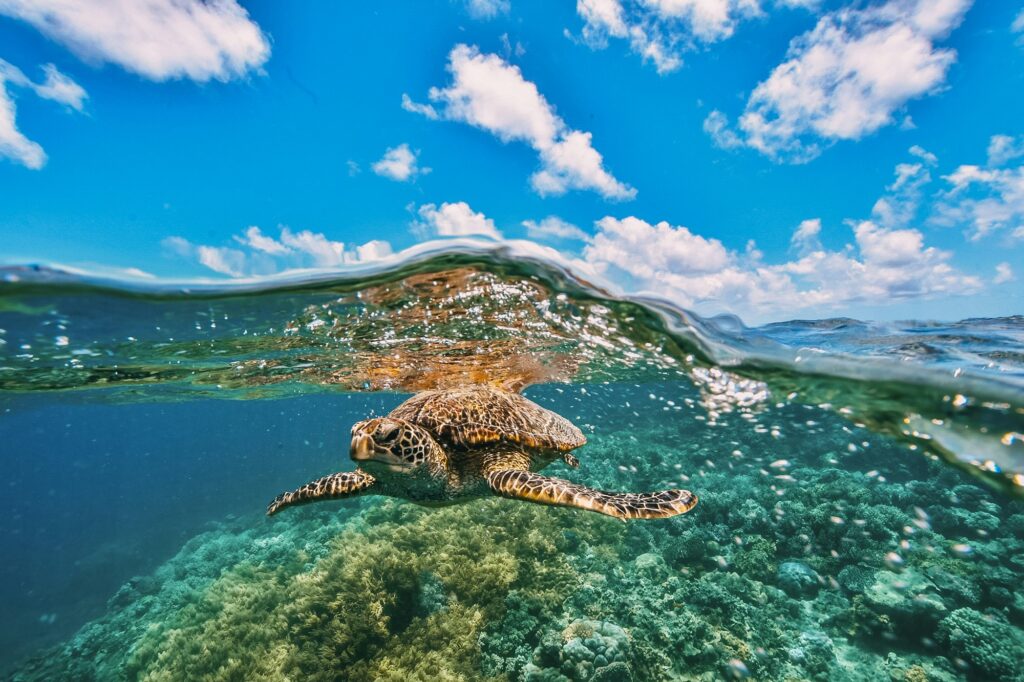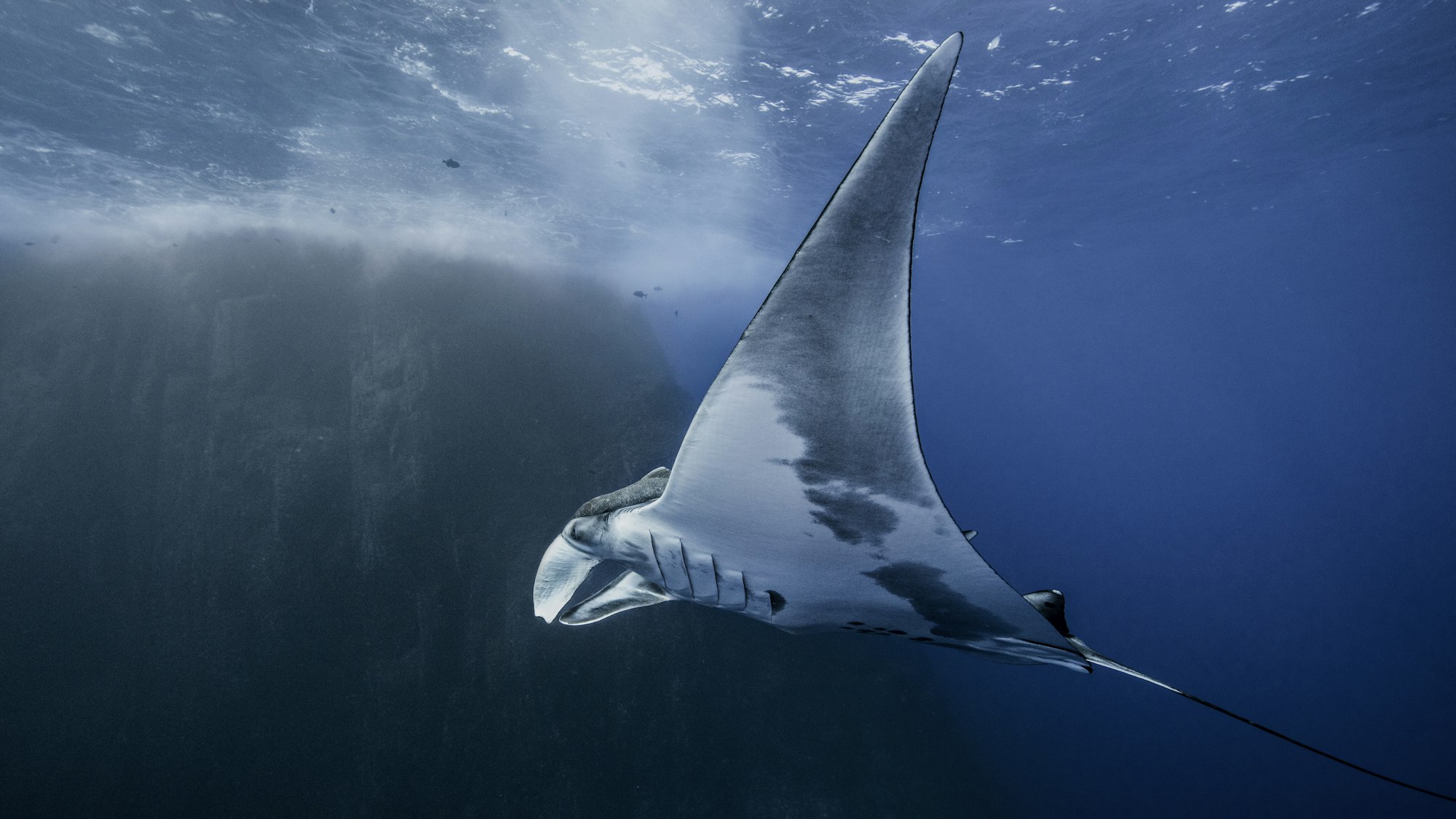The pictures we use in our articles might not show exactly what the words say. We choose these pictures to make you interested in reading more. The pictures work together with the words but don’t take their place. The words still tell you the important facts.
The ocean is a vast and mysterious world that covers over 70% of our planet's surface. With an average depth of about 12,080 feet, it's home to an incredible diversity of life and holds many secrets yet to be discovered. Let's dive into some fascinating facts about ocean that will leave you in awe of this remarkable ecosystem.
1. The Ocean’s Vastness is Mind-Boggling
The total volume of the world's oceans is approximately 320 million cubic miles. To put this into perspective, if all the continents were submerged, the entire planet would be covered by an ocean with an average depth of over 12,000 feet! This immense volume of water plays a crucial role in regulating our planet's climate, weather patterns, and supporting a diverse array of life forms.
2. The Deepest Point on Earth is in the Ocean
The Mariana Trench in the western Pacific Ocean is the deepest part of the world's oceans. It reaches a staggering depth of 36,070 feet - that's deeper than Mount Everest is tall! This extreme environment is home to unique life forms adapted to survive under immense pressure and in total darkness. Despite its harsh conditions, scientists continue to discover new species in this remote part of our planet.
3. The Great Barrier Reef: A Natural Wonder Visible from Space

Located off the coast of Queensland, Australia, the Great Barrier Reef is the largest coral reef system in the world. Spanning over 1,400 miles, it's so vast that it can be seen from space. This incredible ecosystem is home to over 1,500 species of fish, 400 types of hard coral, and numerous other marine organisms. The Great Barrier Reef is not only a natural wonder but also a critical habitat that supports a complex web of marine life.
4. The Blue Whale: The Largest Animal Ever Known
The blue whale, which calls the ocean its home, is the largest animal ever known to have existed. These magnificent creatures can reach lengths of up to 98 feet and weigh around 200 tons. To sustain their massive size, they consume an astonishing 4 tons of krill per day! Despite their enormous size, blue whales are gentle giants that play a crucial role in ocean ecosystems by regulating krill populations and contributing to nutrient cycling through their waste.
5. The Ocean Plays a Crucial Role in Climate Regulation
The ocean acts as a giant heat sink, absorbing vast amounts of heat from the sun. Ocean currents, such as the Gulf Stream, redistribute this heat around the planet, influencing weather patterns and climate conditions. This process helps to moderate temperatures on land and plays a vital role in global climate systems. Additionally, the ocean absorbs about 30% of the carbon dioxide released into the atmosphere, helping to mitigate the effects of climate change.
6. Bioluminescence: The Ocean’s Light Show
Bioluminescence, the production of light by living organisms, is a fascinating phenomenon found in various marine creatures. Some organisms, like bioluminescent plankton, emit light when disturbed, creating a mesmerizing glow in coastal waters. This natural light show serves various purposes in the ocean, from attracting mates to confusing predators or luring prey. The diversity of bioluminescent species in the ocean far surpasses that of terrestrial environments, making it a unique feature of marine ecosystems.
7. The Ocean is a Major Oxygen Producer
Through photosynthesis, marine plants and microscopic algae produce approximately 70% of the Earth's oxygen. These tiny organisms, collectively known as phytoplankton, play a crucial role in maintaining the balance of our atmosphere. Despite their microscopic size, phytoplankton have a massive impact on global oxygen levels and form the base of many marine food chains, supporting life throughout the ocean.
8. The Ocean Floor is Less Explored than the Moon’s Surface

Despite covering most of our planet, the ocean remains largely unexplored. In fact, we have mapped more of the Moon's surface than we have of the ocean floor. Only about 20% of the ocean has been mapped to date. This vast unexplored territory holds the potential for countless new discoveries, from unknown species to valuable resources and insights into Earth's geological history.
9. The Ocean is Home to Incredibly Diverse Ecosystems
From the vibrant coral reefs to the mysterious deep-sea hydrothermal vents, the ocean hosts a wide range of ecosystems. These diverse habitats support an estimated 230,000 known species, with scientists believing there are millions more yet to be discovered. Each ecosystem plays a unique role in the ocean's overall health and biodiversity, from the productive coastal wetlands to the alien-like communities surrounding deep-sea thermal vents.
10. The Ocean Contains Underwater Rivers and Lakes
Believe it or not, there are rivers and lakes beneath the ocean's surface. These underwater bodies of water form when salt water and methane seep through cracks in the sea floor, creating pools denser than the surrounding water. These unique formations often have their own ecosystems and can even have waves and shorelines, much like bodies of water on land.
11. The Ocean’s Salinity is Crucial for Global Water Circulation
The average salinity of the ocean is about 35 parts per thousand, but this can vary in different regions. These variations in salinity, along with temperature differences, drive global water circulation patterns known as the thermohaline circulation. This "ocean conveyor belt" plays a vital role in distributing heat, nutrients, and oxygen throughout the world's oceans, influencing climate and marine ecosystems on a global scale.
12. Coral Reefs: The Rainforests of the Sea
Often called the "rainforests of the sea," coral reefs are among the most biodiverse ecosystems on Earth. Although they cover less than 1% of the ocean floor, coral reefs are home to more than 25% of all marine species. These complex ecosystems provide crucial habitat, breeding grounds, and food sources for a vast array of marine life, from microscopic organisms to large predators.
13. The Ocean Holds Vast Mineral Resources
The ocean floor is rich in mineral resources, including manganese nodules, cobalt-rich crusts, and deposits of precious metals. These resources have the potential to support future technological advancements, but their extraction poses significant environmental challenges. Balancing the need for resources with the preservation of delicate marine ecosystems is a critical issue facing ocean management.
14. Marine Snow: A Constant Shower of Nutrients
In the deep ocean, a continuous shower of organic matter known as marine snow falls from the upper layers. This "snow" consists of dead organisms, fecal matter, and other organic debris. It serves as a crucial food source for deep-sea creatures and plays a significant role in the ocean's carbon cycle, helping to sequester carbon in the deep sea.
15. The Ocean Influences Weather Patterns Worldwide
The interaction between the ocean and the atmosphere drives many of Earth's weather patterns. Phenomena like El Niño and La Niña, caused by changes in ocean temperatures and currents, can have far-reaching effects on global weather. Understanding these ocean-atmosphere interactions is crucial for predicting and preparing for weather events and long-term climate trends.
The Ocean: A World of Wonder and Importance
The ocean is not just a vast expanse of water; it's a complex and vital system that plays a crucial role in our planet's health. From regulating climate to producing oxygen and supporting an incredible diversity of life, the ocean's importance cannot be overstated.
However, human activities are putting significant pressure on ocean ecosystems. Climate change, overfishing, and pollution are just a few of the threats facing our oceans today. As we learn more about the wonders of the ocean, it becomes increasingly clear how important it is to protect and preserve this invaluable resource.
By understanding and appreciating the ocean's mysteries and marvels, we can be inspired to take action to ensure its health for future generations. Whether it's reducing our plastic use, supporting sustainable fishing practices, or advocating for marine protected areas, each of us can play a part in safeguarding the ocean's future.
The ocean continues to surprise and amaze us with new discoveries. As we explore further into its depths and unravel its mysteries, one thing is certain: there's still so much more to learn about this incredible world beneath the waves. Our ongoing exploration and research of the ocean not only satisfies our curiosity but also provides crucial insights that can help us better manage and protect this vital resource for the benefit of all life on Earth.






